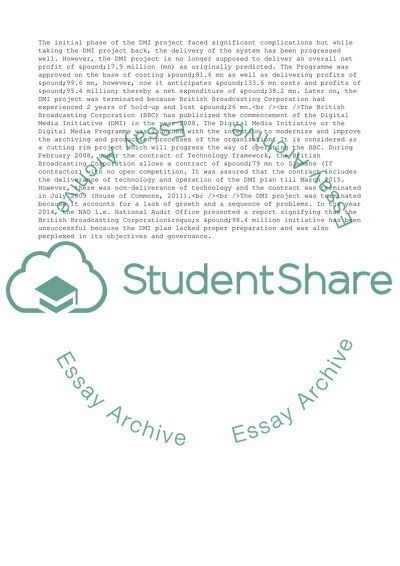Cite this document
(Critical Evaluation of the BBC Digital Media Initiative Coursework Example | Topics and Well Written Essays - 2250 words, n.d.)
Critical Evaluation of the BBC Digital Media Initiative Coursework Example | Topics and Well Written Essays - 2250 words. https://studentshare.org/management/1844776-critical-evaluation-of-the-bbc-dmi
Critical Evaluation of the BBC Digital Media Initiative Coursework Example | Topics and Well Written Essays - 2250 words. https://studentshare.org/management/1844776-critical-evaluation-of-the-bbc-dmi
(Critical Evaluation of the BBC Digital Media Initiative Coursework Example | Topics and Well Written Essays - 2250 Words)
Critical Evaluation of the BBC Digital Media Initiative Coursework Example | Topics and Well Written Essays - 2250 Words. https://studentshare.org/management/1844776-critical-evaluation-of-the-bbc-dmi.
Critical Evaluation of the BBC Digital Media Initiative Coursework Example | Topics and Well Written Essays - 2250 Words. https://studentshare.org/management/1844776-critical-evaluation-of-the-bbc-dmi.
“Critical Evaluation of the BBC Digital Media Initiative Coursework Example | Topics and Well Written Essays - 2250 Words”. https://studentshare.org/management/1844776-critical-evaluation-of-the-bbc-dmi.


